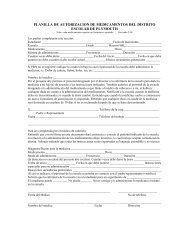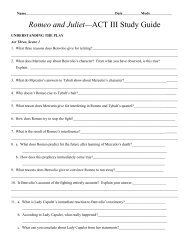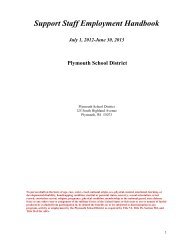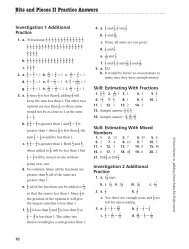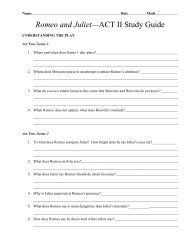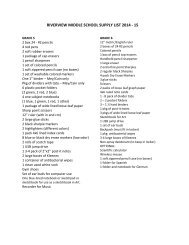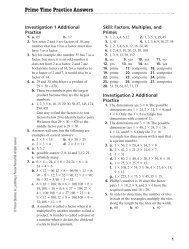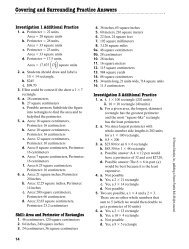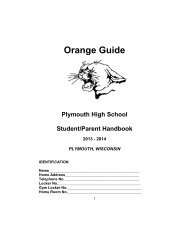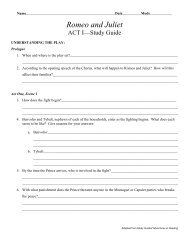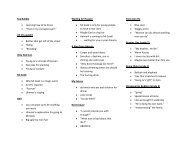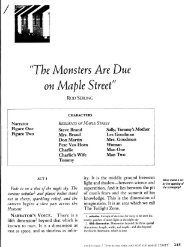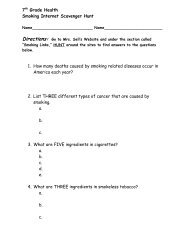AGREEMENT (subject-verb, pronoun-antecedent) study guide
AGREEMENT (subject-verb, pronoun-antecedent) study guide
AGREEMENT (subject-verb, pronoun-antecedent) study guide
Create successful ePaper yourself
Turn your PDF publications into a flip-book with our unique Google optimized e-Paper software.
Subject-<strong>verb</strong> agreement with compound <strong>subject</strong>s:<br />
1. Use a plural <strong>verb</strong> when two singular <strong>subject</strong>s are joined by and (remember, plural <strong>verb</strong>s aren’t the ones that<br />
end in “s”).<br />
The playful lobster and the annoying crab are going to be dinner soon.<br />
*If the items in a compound <strong>subject</strong> actually refer to the person/thing, use a singular <strong>verb</strong>.<br />
Chicken and Dumplings is my favorite dish.<br />
2. Use a singular <strong>verb</strong> when two singular <strong>subject</strong>s are joined by or or nor.<br />
A pen or a pencil is needed for this test.<br />
Niether Miami nor Jacksonville is the capital of Wisconsin.<br />
3. Use a plural <strong>verb</strong> when two plural <strong>subject</strong>s are joined by and, or, or nor.<br />
Rabbits or guinea pigs are great pets.<br />
4. When both a singular <strong>subject</strong> and a plural <strong>subject</strong> are joined by or or nor, the <strong>verb</strong> should agree with the<br />
<strong>subject</strong> closest to the <strong>verb</strong>.<br />
Either Dan or his friends are mistaken.<br />
Niether the actors nor the director was on time.



